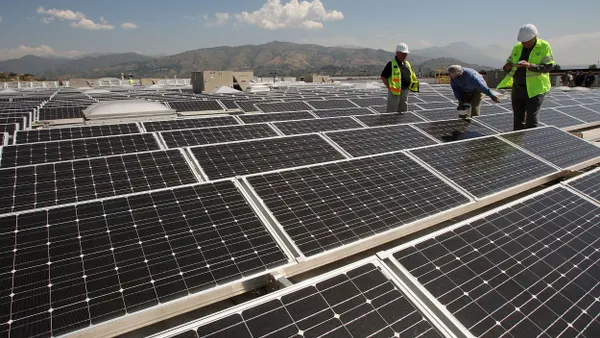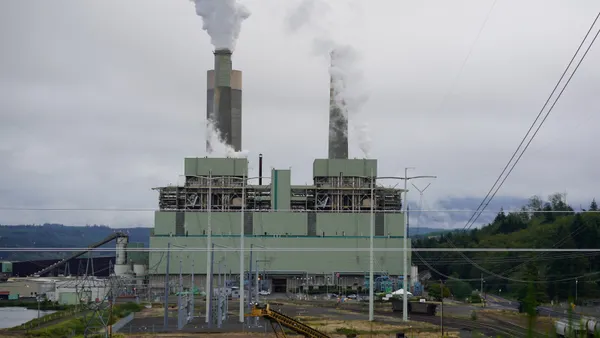Dive Brief:
- After the first joint meeting between U.S. President Barack Obama and Canadian Prime Minister Justin Trudeau, the two governments pledged cooperation on climate change issues, particularly implementation of the Paris climate accord signed in December and mitigation of greenhouse gas emissions from oil and gas extraction.
- A joint statement Thursday morning said that the two leaders regard the Paris Agreement as a "turning point in global efforts to combat climate change," and that the two nations "must and will play a leadership role internationally in the low carbon global economy over the coming decades."
- The agreement outlines joint efforts the governments will take to implement the Paris Agreement —which aims to limit global warming to 2°C over the course of the century — as well as limit methane emissions from the oil and gas sector, promote clean energy and efficiency, and preserve the Arctic environment and wildlife species.
Dive Insight:
When Canada's Liberal Party won a surprise victory in national elections last October, most power sector insiders anticipated a more robust stance on climate change from incoming Prime Minister Justin Trudeau than had been staked out by his Conservative predecessor.
After the first meeting between Trudeau and American President Barack Obama, some of those expectations are being realized — at least in intent. The two governments issued a statement Thursday morning outlining how they would cooperate on a number of climate change and energy issues, including the Paris climate accord and renewable energy growth.
A key part of the climate mitigation strategy will be reducing emissions of methane — a greenhouse gas over 80 times more potent than carbon dioxide — from oil and gas operations. In the statement, the two nations committed to reduce methane emissions from the sector 40%-45% below 2012 levels by 2025 and explore other opportunities for methane reductions.
Both the U.S. Environmental Protection Agency and Environment and Climate Change Canada will draw up plans to regulate methane emissions and move "expeditiously as possible to complete this process."
Regulation of methane emissions has been high on the priority list of environmental interests in both countries. While power plant pollution in the U.S. has declined as coal retirements give way to greater gas generation, some studies have suggested the resulting increase in methane emissions could cancel out any benefits for the climate.
On the Paris accord, the governments committed to working with developing countries to strengthen their climate goals and adaptation efforts, as well as promoting "robust implementation of the carbon markets-related provisions of the Paris Agreement" and avoiding "'double counting' of emission reductions."
To promote clean energy growth, the leaders committed to "jointly study, identify, and implement options for broad integration, including how to bring more wind, solar, hydro and other renewable energy online," while also increasing collaboration on clean energy innovation and improving efficiency standards.
Obama and Trudeau also announced their intent to work together on preserving Arctic environments and wildlife populations and building a sustainable economy for the region.
The new statement of cooperation follows a rocky relationship between President Obama and Stephen Harper — Trudeau's predecessor who aimed to expand Canada's oil and gas industry. While Harper and Obama locked horns over the drawn-out approval process for the defunct Keystone Pipeline, Trudeau did not criticize the U.S. position and indicated his intent to work with the Americans on climate.













